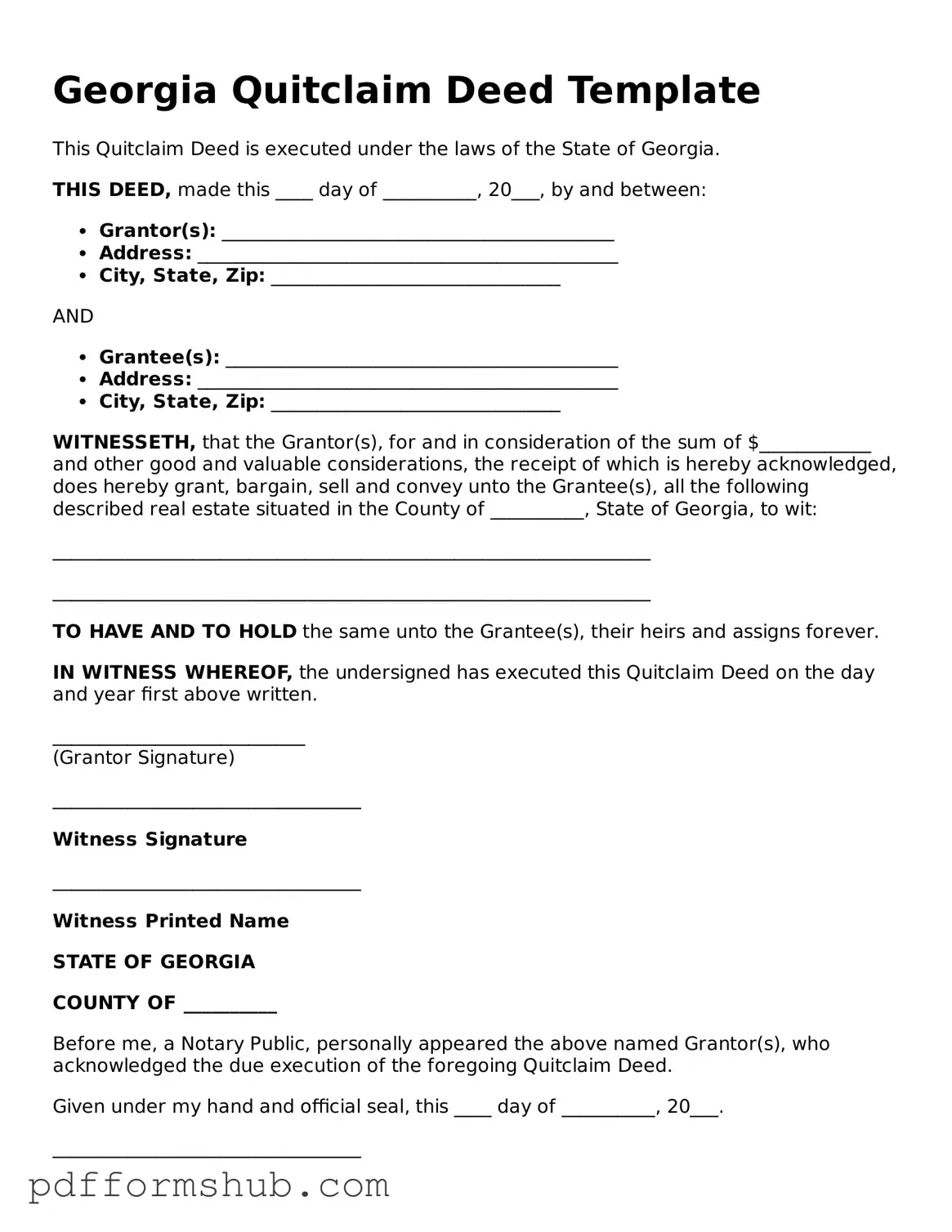Attorney-Verified Quitclaim Deed Form for Georgia State
A Georgia Quitclaim Deed is a legal document used to transfer ownership of real estate from one party to another without guaranteeing the title's validity. This form serves as a simple way to convey property rights, often used among family members or in situations where the seller cannot provide a warranty. If you’re ready to fill out the form, click the button below.
Customize Form

Attorney-Verified Quitclaim Deed Form for Georgia State
Customize Form

Customize Form
or
Free PDF Form
Short deadline? Complete this form now
Complete Quitclaim Deed online without printing hassles.